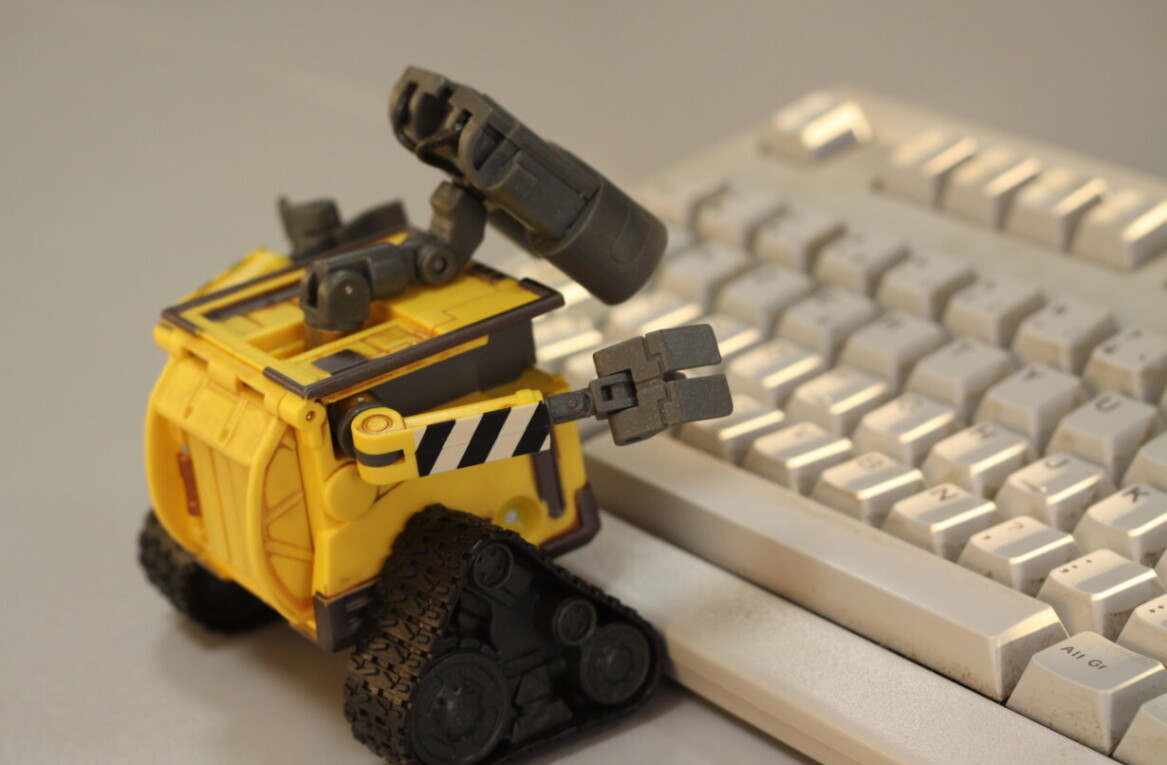
The door handles on the Tesla Model S are exceptionally terrible. Until you get used to them. Until you become an insider.
Because no one really wants to wait for an actuated door handle that pops out in deference only to those who are worthy. For the mainstream passenger encountering this unnecessary mystery, Tesla’s user experience has taken a backseat in favor of self-aggrandizing exclusivity.
It’s the kind of result that arises when engineers and developers view problems solely through the lens of their own experiences — one crafted with little empathy for outsiders and which brands them as exceptional because of those experiences.
This is not to say that every engineer is a jerk. The engineers I’m referring to are the ones that embrace the mythology of an engineer being the brilliant, tortured auteur who invents and innovates at tremendous personal cost to those who work with him (Stanley Kubrick, Alfred Hitchock, and Steve Jobs, to name a few).
Too many companies grant higher station to their engineers — the 21st century auteur — exalting them as neo-nobility with a recklessness that pollutes company culture, infects product development, and reaffirms to engineers that their behavior is acceptable or even encouraged when it should be anything but.
The responsibility ultimately falls on the companies and laissez faire attitudes that have normalized engineering exceptionalism. It’s well past time for corporate leaders to foster an environment of inclusivity, where engineers themselves become leaders whose ability to innovate isn’t tied to their self-importance and disregard for basic workplace civility.
The cultural consequences of exceptionalism
Engineers stomp and roar through the workplace, their toxicity on regal display as evidence of their greatness. Culturally insulated from the rest of their organizations, they wear their insecurities as armor, a razor-wire cloak that reminds us that they are exceptional, bent under the burden of their own genius. These are the people setting the agenda at tech companies, driving hiring and promotion decisions and impacting the productivity and participation of everyone around them.
If you have seen a rejection of engineering candidates that don’t look like your company’s senior engineers for arbitrary reasons, you have seen this behavior. If you have been on the receiving end of a code review that resembles a personal attack more than a process for driving quality, you know this illness. When you watch 10 male engineers all look at the lone female participant of a meeting when someone asks who is taking notes, you know this culture.
Does this exhausting bullshit sounds familiar? The sense of privilege and entitlement is deeply reinforced in the communities outside of the workplace that engineers frequent. This is the same undercurrent of elitism and entitlement that demands that Brie Larson smile in her poster for Captain Marvel. It’s the gatekeeping that led to the reprehensible review bombing of that film (and so many others) because its lead is a female with more agency and power than the status quo is comfortable with.
It’s the same undercurrent of elitism and entitlement that permitted
Linux creator Linus Torvalds to berate and demean those contributing to the Linux kernel for years. The message is clear online and in the workplace: software engineering, comic book culture, and science fiction all belong to a very specific kind of person. This person is white and male and deeply threatened by participation by those who are not.
That this behavior is accepted and written off as a necessary character trait for greatness by so many people is the end result of an engineering culture that at first excuses abusive behaviors and then points to them as proof of commitment, dedication, and brilliance. The lack of representation of women and people of color in engineering flows out of the same culture that produces Gamergate and James Damore’s “Google memo.”
The exclusivity and arrogance with which many engineers carry themselves keeps others, including would-be users of their products, at a distance while reinforcing the insular behaviors of this specific subset of — let’s say it — white, cisgender, heterosexual men. The tragedy is that our culture in the tech industry has rewarded this for years. Being [white/male/nerd/engineer/insider] bestows social capital that can be traded on; they get to take part in a culture that was built specifically for them.
Of even greater concern now is that this same culture produces the algorithms and machine intelligence into which these attitudes are encoded. As we yield a substantial portion of our personal decision-making as human beings to software assistance, we accept the inherent, often homogeneous biases of those who design, implement and train that software. The consequence is an algorithm, product or similar thing that is built by and implicitly intended for the very people who made it in the first place.
A new breed of engineer
Consider the Ernest Cline bestseller/Spielberg action adventure, Ready Player One. The distant auteur (James Halliday, played by Mark Rylance in the film adaptation) has built an elaborate virtual utopia of pop culture destinations and references through which he forces competitors to vie to succeed him as the “benevolent” dictator.
Eventually, to no one’s surprise, the equivalent of a younger version of Halliday himself is granted the entire informational capacity of the known world because his likes and dislikes are perfectly aligned with those of the creator.
Only he, the individual with the most insider cultural capital — he who can open the Tesla door — can prevent the unstoppable forces of commercialization and preserve the authenticity of the creator’s motive.
It’s a perfect metaphor for the self-perpetuation of developer culture gone toxic when read or viewed as the gatekeeping exercise that parallels the way software engineering communities and fanbases exclude the “unworthy.” Now the world of software is run by, built by and tailored for this mindset.
Fundamental services for logistics, transportation, capital allocation, and information distribution are the province of a low-diversity monoculture. Today’s engineers — and the companies that grant or permit this sense of exceptionalism — fail us all when they continue to play the role of aggrieved nerds, given their actual roles as leaders and innovators. And to be successful — to create and contribute to successful companies — companies must evolve their cultures to enable engineers to become more like the world they claim to serve.
Changing corporate culture, one door handle at a time
Corporate leadership has the responsibility to cultivate and shape overall company culture, including their engineering teams. The closer an executive is to the top of the org chart, the truer this is: A manager’s first responsibility is to create a culture in which people feel safe. If executives reward behaviors that isolate or divide, regardless of what the perceived result of that behavior is, they become a detriment to themselves as well as their team, company, and customers.
Stop tolerating and rewarding the auteur attitude, the isolation or the glorification of engineering for its own sake. Executives and managers may not explicitly condone some engineers’ poor attitudes, but if they receive raises or promotions, it sends the message that the prickly auteur can — and maybe even should — secure more power and influence.
Encourage professional development and demand greater diversity. Make it OK for the auteur to not know everything about everything. Give them opportunities to learn. Tie their education to the company mission and intended customer focus. Have them do personal growth work as well: executive coaching, counseling, group therapy, team-building.
Help them focus on something meaningful that they’re passionate about outside the workplace — something away from the keyboard. People don’t spend much time on themselves, on self-care or on analyzing their own behavior and taking control of their own emotions. But it’s increasingly necessary in a world — and workplace — with more connections than ever.
If you are a leader or an employee of an organization that tolerates the abrasive, toxic behavior on display in software engineering culture today, you are responsible for that which we have wrought together. We must do better and accept that we have not done so in the past. Given the talent and passion of our industry, we are leaving real value and more than a small fraction of our own human dignity on the table by not reinventing the way we treat each other.
Get the TNW newsletter
Get the most important tech news in your inbox each week.




